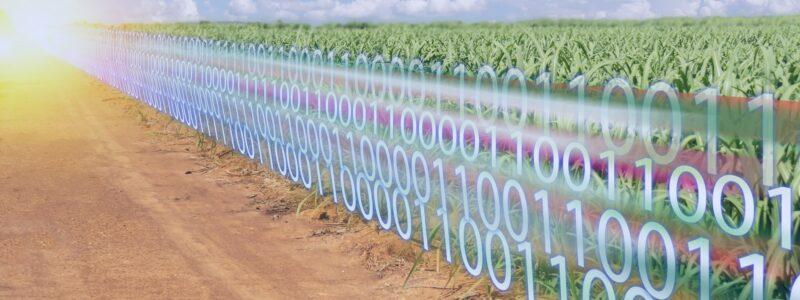Agriculture is steadily adopting the use of blockchain technology to improve sustainability by enabling the entire food supply chain – growers, processors, manufacturers, retailers and consumers – to employ a framework that helps with delivery of comprehensive transparency for consumers, as well as deter the growing presence of food fraud.
What is Blockchain?
The origin of blockchain stems from a programmer who was looking for a mechanism to control the flow and valuation of bitcoins (a crypto-currency). Blockchains are an open source set of books with transactions being recorded, and confirmed, anonymously. Like a multiple set of books written in ink (or a ledger), once the transaction has been confirmed it cannot be changed. While some have compared it to little more than a sophisticated data base, it can’t be denied that blockchain has provoked some interesting uses for agricultural sustainability, and the industry is trying to interpret how it can be employed in the field.
Essentially, blockchains hold huge promise as permanent, tamper-proof databases for any kind of data shared by the agriculture and food organizations. It enables them to record, monitor, and get the real-time information of the food product in the supply chain. This recorded information cannot be altered by any of the stakeholders, which makes this technology the safest for all transactions.
Blockchain Usage for Transparency and Supply Chain
One obvious use for the blockchain in agriculture has been to verify organically grown, processed, or manufactured food stuffs in a transparent, open environment (in direct support of sustainability).
According to the 2016 Label Insight Food Revolution Study, 94% of the respondents in the study reported that it is important for them to buy from manufacturers who are transparent with consumers
Kenneth Dallmier of the Clarkson Grain Co., an organic corn and soybean distributor and processor in central Illinois and a member of the OTA task force reports, “Producers, companies, and American consumers could improve compliance if methods such as blockchain technology were used to complement existing verification methods.“
A look at supply chain efficacy through employment of a blockchain is one way to understand how the technology can improve transparency and provide product verification.
The Benefits
According to loaddelivered.com, the benefits for food and ag operations incorporating blockchain technology are:
- Recording the quantity and transfer of assets—like pallets, trailers, containers, etc.—as they move between supply chain nodes
- Tracking purchase orders, change orders, receipts, shipment notifications, or other trade-related documents
- Assigning or verifying certifications or certain properties of physical products; for example, determining if a food product is organic or fair trade
- Linking physical goods to serial numbers, bar codes, digital tags like RFID, etc.
- Sharing information about manufacturing process, assembly, delivery, and maintenance of products with suppliers and vendors
As organic food and products continue to become more and more important to consumers, agriculture operations look for better, faster, smarter systems to assure sustainability, transparency, certification, and food safety (among other benefits) that blockchains can provide.
Contact a K·Coe Isom advisor to learn more about the applicability and benefits of blockchain technology for your business.








